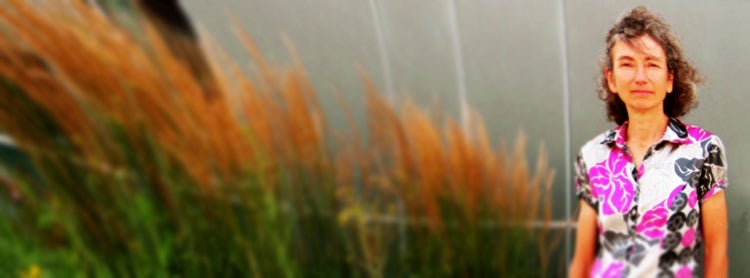 |
| Christine Moresoli |
Written by Victoria Faraci, Special Projects (Teaching Stories), CTE.
You might be surprised to learn that Dr. Christine Moresoli – a veteran Waterloo instructor in the Faculty of Engineering, with 21 years of teaching experience – finds inspiration for her teaching in the aisles of grocery stores.
Moresoli is committed to engaging her students through unconventional means. For her Food Process Engineering course (ChE 564), she knew students were intrigued when she used real-life food examples. To help convey the importance of sensory attributes and processing conditions, she brought into class two frozen desserts, one made from milk and the other from plant-oil ingredients. Her students tasted the palpable difference that the ingredients made, a learning activity that memorably leveraged their sensory experience. A forthright instructor, Moresoli is not afraid to stray from the norm if it means keeping her students engaged.
Case studies are another means by which Moresoli engages her students. Believing that case studies are a good strategy for connecting course content with real-life situations, Moresoli used the 2008 listeriosis outbreak at the Toronto-based Maple Leafs Food plant in ChE 564 in the Winter 2013 term. The fact that this was a real case piqued her students’ interest: one of them stated that it provided a “topic that was recent and relevant to Canada.” Moresoli notes that investigating authentic cases reinforces topics that were presented earlier in lectures.
In this senior level course, students were given background information about the issue in the form of a case study. Moresoli then identified four topics that could be applied to the issue and students were responsible for presenting on these topics in groups. This assignment replaced the midterm. Moresoli says she found this group project to be a more effective form of assessment, saying midterms based solely on memorization just do not work well for engineering students.
By asking her students at the beginning of the term to identify topics of interest to them, Moresoli is able to accommodate the collective interests of her class. “By the time they are in fourth year, students already have completed four or five co-op work terms,” so she is able to draw on these experiences. With this approach, she can see the evolution of student interests over the years.
Based on her experience with case studies, Moresoli believes that students are willing to try new things, as long as they see a point in them. Veronica Wong, a student in this course, was definitely one of them. She says that in ChE 564, “the activities and projects were relevant to our everyday lives.” Another student, Michael Gu, also notes the relevance of the topics studied, especially being able to analyze the problem from different angles by using course concepts.
As a teacher, integrating case studies is definitely a challenge because – says Moresoli – the role of the instructor shifts to the role of a facilitator, a “perceived dilemma” for some faculty. “You have to do a lot of planning and organizing” to guide students to the final product. Ultimately, Moresoli says “you become a minor or secondary actor in your classroom,” and teachers have to be prepared for this shift. With an eye to future courses, and obtaining optimal student engagement, Moresoli is still in pursuit of resources and efficiencies that will help reduce the extra commitment demanded by this effective approach.
For Moresoli, though, the best part of teaching comes from seeing her students engaged. They are then in a position to acquire and apply knowledge so they can look at the world differently.Read more Teaching Stories
Tip sheets
CTE has developed more than 100 Teaching Tips. Each one is a succinct document that conveys useful ideas and practical methods for effective teaching. Some of the Teaching Tips that are relevant to the strategies mentioned in this Teaching Story include the following: